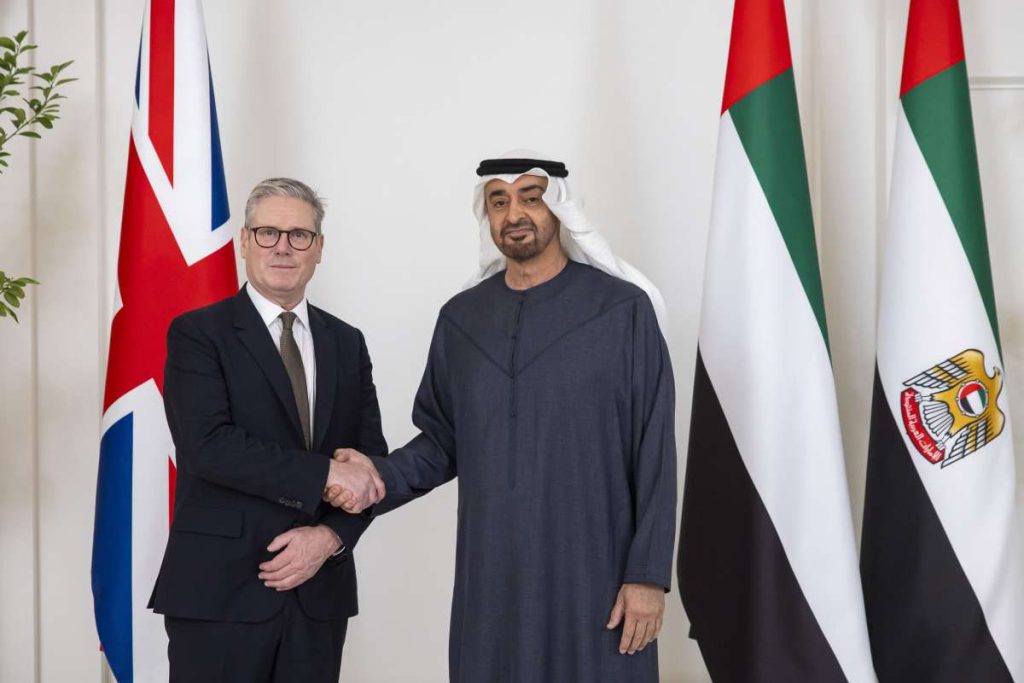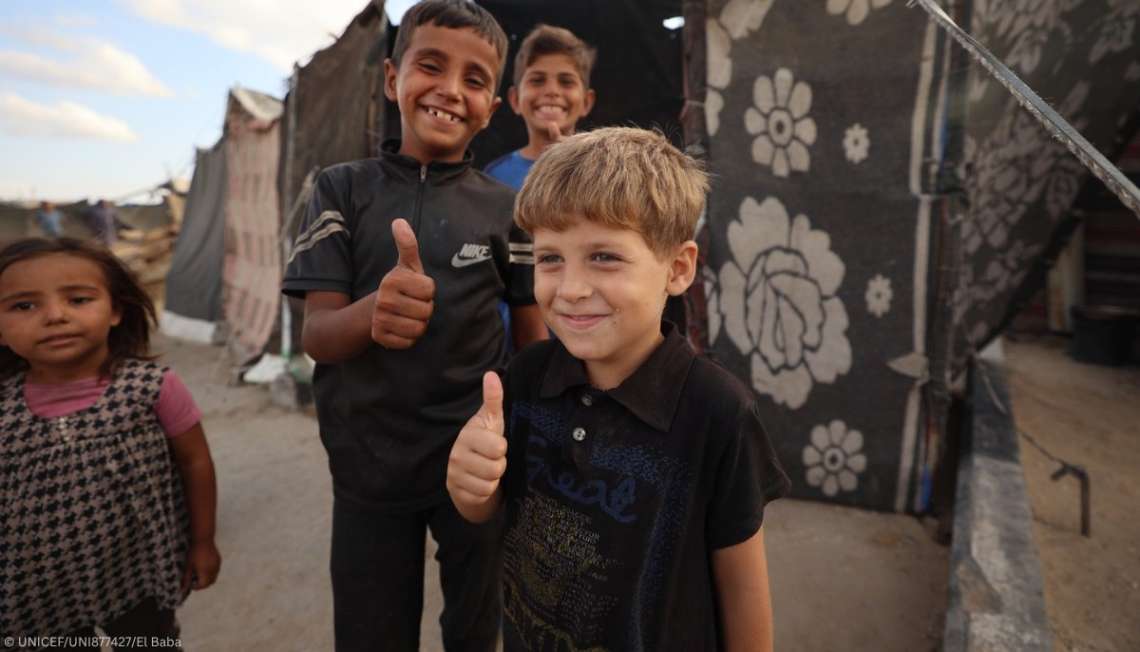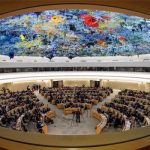The EAM further highlighted India’s assistance to Palestine and Lebanon amid the ongoing crisis in the Middle East…reports Asian Lite News
External Affairs Minister S Jaishankar has highlighted India’s “balanced approach” to the Middle East and reaffirmed support for a two-state solution to the Israel-Palestine conflict.
Emphasizing India’s strong opposition to terrorism and hostage-taking, Jaishankar also underscored the importance of respecting humanitarian law and minimising civilian casualties in any military action.
Jaishankar said, “There is one issue which I would like to place before you because it’s very topical. And it is something which might come up in your own interactions with local people. So it’s important that you know that it pertains to the conflict and violence that has been going on in the Middle East. India’s approach is an approach which is balanced, which is not one sided, which looks at the issue in all its complexity and which also has a fundamental commitment to justice and equity.”
“As a country that itself has been impacted so deeply by terrorism, we are very strongly opposed to terrorism and hostage taking. They should never be excused or condoned. But at the same time, it is very important that any action which is taken by any government or any armed force must always take care of civilian casualties, must always be respectful of humanitarian law and should cater for relief. And, you know, looking after people who are affected in any operation,” he added.
The EAM further highlighted India’s assistance to Palestine and Lebanon amid the ongoing crisis in the Middle East. “And that is why, in the midst of all of this, India has also been contributing to the UNRWA, and India has supplied relief material to Palestine. We have also given medicines to Lebanon because of the fighting and the casualties which have taken place there,” Jaishankar said.
He added, “And at the end of the day, we do believe that there must be a solution to the Palestinian issue because if there is not one that will always remain the cause of instability in this region, so we do support a two state solution. Obviously, that is something the international community has to discuss and agree upon.”
Jaishankar was on an official visit to Qatar and Bahrain from December 6-9. He co-chaired the 4th India – Bahrain High Joint Commission with Bahrainian counterpart, Abdullatif bin Rashid Al Zayani in Manama on Monday.
The EAM took stock of the bilateral relationship and also discussed new opportunities in space, education, FinTech and technology.
“Pleased to co-chair the 4th India – Bahrain High Joint Commission meeting alongside FM Dr Abdullatif bin Rashid Al Zayani in Manama today,” Jaishankar stated in a post on X.
“Took stock of our bilateral relationship focusing on trade, investments, healthcare, energy, security, tourism and people to people ties. Discussed new opportunities in space, education, FinTech and technology. Also exchanged views on recent developments in the region,” he added. (ANI)
India, Bahrain Cement Ties
External Affairs Minister S Jaishankar and his Bahraini counterpart Abdullatif bin Rashid Alzayani on Monday appreciated the role of the Indian community in the Gulf nation as a vital link between the two countries, and underscored the importance of mutual cooperation in various fields, including healthcare, tourism, and education.
The Ministry of External Affairs in a joint statement released on Monday after the 4th India-Bahrain High Joint Commission Meeting said, “Both sides appreciated the role of the Indian community in Bahrain as an important link between the two countries, and their vital contribution in the development of the Kingdom of Bahrain. The Indian side commended the Kingdom’s liberal policies of tolerance and peaceful coexistence, as well as their welcoming society in making Bahrain a preferred destination for Indian professionals and workers, and their families. Both sides acknowledged the close cooperation during COVID-19 pandemic, which helped in mitigating its impact. The Indian side thanked the leadership and the government of Bahrain for the royal pardon of more than 125 prisoners of Indian Nationality in the last year, reflecting Bahrain’s generosity.”
The two ministers also expressed satisfaction at the growth in two-way tourism and the increasing number of Bahraini students choosing to study in India.
The MEA said, “The two Foreign Ministers expressed satisfaction at the exponential increase in two-way tourism, and its impact in cementing people-to-people ties and the trade and economic relations between the two countries.”
The two sides agreed to expand the scope of bilateral cooperation in the education sector. In this regard, the Indian side welcomed more Bahraini students wishing to enrol in leading higher education institutes in India. The two sides also stressed the importance of working to sign a Memorandum of Understanding between the two governments to enhance education cooperation.
Both sides also agreed to deepen the cooperation on consular issues and welcomed the decision to establish a Joint Consular Committee to discuss issues of mutual interest in Consular affairs and to strengthen cooperation in Consular issues.
The meeting also marked the continued expansion of cultural exchanges, with both nations agreeing to renew their Cultural Exchange Program and work on new initiatives to foster deeper ties.
“Both sides recalled the Cultural Exchange Programme (CEP) signed by them for 2019-23 and expressed happiness at the implementation of the CEP in strengthening the historical cultural ties. EAM conveyed happiness at the successful visit of Shaikh Khalifa bin Ahmed bin Abdulla Al Khalifa to India for the 46th WHC of UNESCO in New Delhi in July 2024, and his meeting with Gajendra Singh Shekhawat, Minister of Culture and Tourism of the Republic of India, to take bilateral cooperation in the field of Culture ahead. Both sides agreed to continue discussions regarding the renewal of The Cultural Exchange Program – for the period 2025-2029,” the MEA said.
The Indian side acknowledged that the bilateral security dialogue and the Joint Steering Committee (JSC) in the field of combating international terrorism, are important mechanisms in institutionalizing cooperation in the area of security cooperation including Cybersecurity. Both sides agreed to hold the third security dialogue and the third JSC at the earliest.
The two Ministers reiterated their condemnation of terrorism in all its forms and manifestations and called on all states to reject and abandon the use of terrorism against other countries.
ALSO READ: INDIA Bloc Demands Immediate Central Intervention in Manipur Crisis












